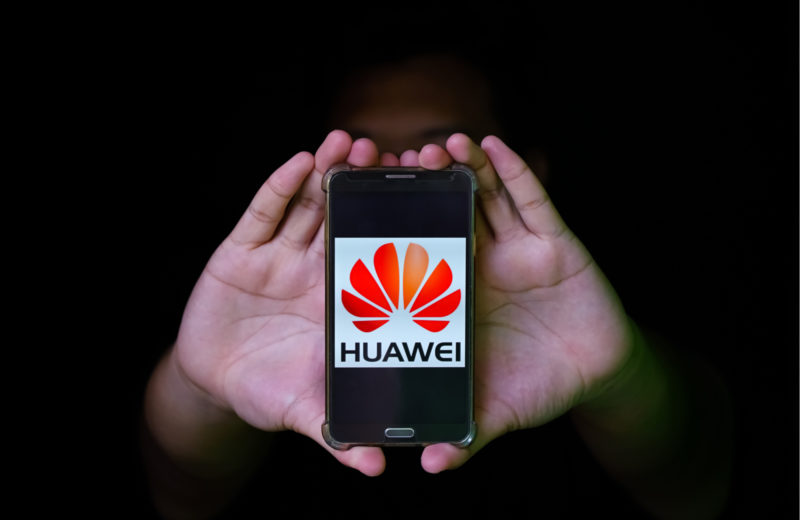The Attempt to Suffocate Huawei Is Foolish and Destined to Fail

Readers of this column are familiar with this historical truth, but it’s worth repeating in light of the ongoing conservative crack-up over Chinese communications giant Huawei. For clarity on the matter, it should be stated right away that if you’re selling a desirable good, you’re selling to EVERYONE.
For background on what’s blindingly basic, back in 1973 Arab country members of OPEC announced an embargo on the U.S. Crucial about this wholly symbolic gesture is that Americans consumed every bit as much “OPEC” oil during the embargo – and by some accounts more – as they did before it. That they did was a statement of the obvious. Though Arab OPEC members ceased selling their oil to us, those they sold to didn’t.
There’s no accounting for the final destination of any good. The previous truth explains why Apple iPhones are all over Iran, and why Mercedes-Benz cars, American music, and Nike shoes can be found in North Korea in the hands of those with means. Though Germany has an embargo in place against North Korea, and though the U.S. has trade embargoes against both countries, ownership of Apple, Mercedes and Nike products is global. Many of those owners aren’t constrained by what is once again wholly symbolic, and an all-too-typical gesture of economically confused political types. Oh well, just because they’re clueless about economics doesn’t mean readers should be.
Which brings us to the ongoing attempts by the Trump administration to suffocate Huawei. That these actions are nakedly protectionist doesn’t seem to concern the foreign policy establishment, along with all too many Republicans who would be writing opinion pieces similar to this one (minus the erudition, mind you….) if it were President Hillary Clinton vandalizing basic economics.
Needless to say, it’s the stance of the Trump administration along with the Pentagon (in a sense) that the federal government should, according to the Wall Street Journal, “reduce the flow of U.S.-made products to Huawei out of national-security concerns.” These actions reveal an impressive level of economic ignorance on the part of the Administration, a need to make empty political gestures, or both.
Stated simply, short of U.S. technology companies ceasing the sales of their wares altogether, there will be no cessation of technology sales to Huawei. An economically confused federal government can levy all manner of export controls on U.S. companies vis-à-vis Huawei, but that same government can’t control those whom U.S. technology companies are free to sell to.
History supports this basic truth, and 1973 is far from the only example. During World War I, the U.S. embargoed Germany, but the embargo in no way limited U.S. exports to Germany. Out of nowhere, there was a surge of U.S. exports to Scandinavian countries, only for those goods to find their way to Germany. Considering U.S. tariffs foisted on China more modernly, does anyone think the surge in U.S. exports to Vietnam is just some random coincidence? Policymakers, pundits and economists should put a sign up on the mirror they look into the most: if you’re selling your goods you’re selling to EVERYONE.
So long as U.S. technology companies are creating desirable products, and so long as those products are useful to Huawei, they’ll reach the Shenzhen-based company. The only reasonable way they won’t is if Huawei, properly offended by the routine insult of its business practices, chooses to find other suppliers. About the odds of this happening, that’s for technology experts to answer. Still, it’s not unreasonable to point out that market share is generally hard won. How sad that Republicans in Washington, though historically averse to planning exchange among private businesses, are so eager to plan it now that one of their own is in the White House. How damaging for U.S. businesses and their future growth that politics could get in the way of future growth and development thanks to reduced sales care of the federal government. But that’s a slight digression.
Back to global exchange, the simple economic truth that producers of desirable goods and services are trading with EVERYONE rates another brief mention as it applies to Huawei. It’s said that the unspeakable house arrest of Huawei founder Ren Zhengfei’s daughter (the equivalent of Chinese authorities arresting the son of Bill Gates or Jeff Bezos) Meng Wanzhou is largely a consequence of Huawei doing business in Iran. Ok, but everyone’s doing business in Iran, including U.S. companies; their sales there a function of those not barred from transacting with individuals inside the country. Hard as they try, governments can’t rewrite economic reality.
Which brings us to the latest shameful comment about Huawei that comes to us care of U.S. Sen. Rick Scott. Scott told the Journal that “We know Huawei is supported and controlled by the communist regime in Beijing.” Scott’s obtuse ramblings are extra sad given that Scott himself saw his own company (Columbia HCA) mugged by the feds back in the 1990s. This sad bit of history rates mention when it’s remembered that Scott knows, or at least used to know, that innovative companies are never hatched or “controlled” by government. Scott’s entrepreneurial ways from the past showed just how much his vision was not a creation of federal control (they could never have built the impressive business that Scott did), only for the feds to insert themselves in $631 million fashion anyway.
The main thing is that assuming government control of Huawei, what are Republicans so worried about? They routinely make a correct case domestically that the truly talented rarely bring those talents to Washington, and they don’t because it’s a known truth among Republicans that government suffocates genius. As a rule. Indeed, how many times have Republicans pointed out that the Post Office, the DMV, the Passport Office and anything else “controlled” by our democratically elected governments are an inept disaster?
Yet the Chinese government can somehow control a company so effective that it operates in 177 countries around the world? A company so effective that cellphone companies stateside freely acknowledge that their operations would cease sans Huawei technology? Dear Republicans, what about Huawei’s genius speaks to government control? Of course if it is government controlled, what does the latter say about our routine disdain for government and government-run companies over the decades?
Back to reality, it should be stressed yet again that if Huawei really is a puppet of the “communists,” then Americans needn’t fear it rolling out 5G technology or any other kind of technology that participants in the most dynamic economy in the world (that would be the U.S. economy) would want in the first place. Of course, if Huawei isn’t a puppet, as in if it’s actually a brilliant company, Republicans should relax. No innovative company would risk it all to please government. Only failing companies would, at which point Republicans once again would have no need to fear Huawei penetration stateside. This is a truth Republicans surely used to know.
This piece originally appeared at RealClearMarkets











